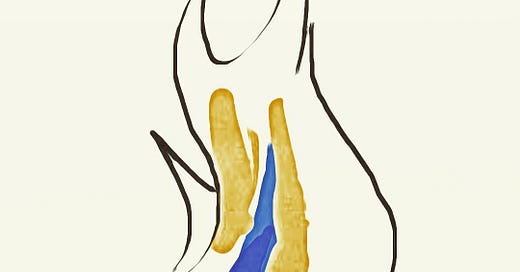Faith in Good Tidings
The Derek Chauvin Verdict Was Deeply Unsatisfying -- All Is As It Should Be
Last week, when the murderer Derek Chauvin was convicted of his crimes in a court of law, I was quite excited. I immediately texted my siblings: “We got the MF!” to receive in return varying shades of lethargy. My sister, who lives in Minneapolis, had comments about the state of city lock down. My brother was silent.
Twitter, similarly, was (surprisingly, in my eyes) quiet. I heard about some politicians saying stupid things. And there was the typical Trumpist balderdash about I don’t know what.
From “my side” though (and I realize this is a fraught distinction, ambivalent as I was about the collective goings-on last summer) there was scant a celebration to be found. Indeed, it was almost more a sigh of resignation as much as it was a breath of relief.
My greatest critique of the “far left” is that we too often allow perfection to be the enemy of the good. Though that’s another column in itself, it’s relevant here in that the general consensus was “this is good news, but we have much more to do.”
While on its face I don’t disagree with this assessment (although there is plenty to be argued about what needs to be done), the primary point I’d like to make here is
THIS IS REALLY GOOD NEWS.
Hitherto, we have had roughly zero success in prosecuting cops. Politicians had been shifting the blame onto police unions, but a lot of it came down to the fact that it was very difficult to assemble evidence and compel a jury to feel confident that they could actually (without any nagging doubt) verifiably ascertain that the cop had committed the crime described in the charge being made.
The ability for a skillful defense attorney to raise that question in the juror’s mind had plenty of support. Cops are, after all, widely seen (contra popular narrative) as protectors of the peace and followers of the law who have very difficult jobs.
So on any specific point in an official charge, a jury can be rather easily convinced that there might be room for doubt — especially when there are so many conflicting accounts of what happened.
I can understand why this is deeply unsatisfying to a person like myself who is emotionally invested in the struggle for justice for our weakest citizens. Once something goes to court, it leaves the unofficial court of public opinion, and therein the “debate” becomes a long, drawn-out, procedural game of technicality.
And this is as it should be. The design of the Court of Law in the Republic was not made to gratify the emotions. It was made to, as best (and as failingly) as we can, attempt to establish some air of objectivity when considering lawful judgement of controversial conflicts.
We made a huge victory in establishing a way to win in that environment. Cases like this, of unarmed people who come into fatal altercation with law enforcement, are difficult cases to win. We learned a number of things through this experience that we can mimic going forward. Furthermore, we actually won one — in itself a huge victory.
I must confess that my dissatisfaction at the dissatisfaction of others has a nice ring of irony to it. So here I click a few characters in my own personal protest, but it is a protest against the greatest enemy of revolution — pessimism.





